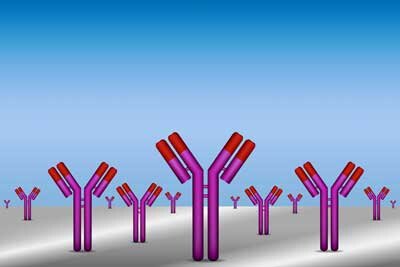Could the Gut Cure Neuroinflammation? An MS and ME/CFS/FM Inquiry
Gut Neuroinflammation Connection Revealed
“There is something very critical about how the gut and brain are connected, and we’re starting to unravel the molecular threads behind that clinical observation. It’s a great example of how fast science can move.” Jen Gommerman - co-author
Limiting our attention solely to chronic fatigue syndrome (ME/CFS), fibromyalgia (FM) and allied disorders might be a mistake. Recent studies indicate that ME/CFS and FM fit into the broad category of neuroinflammatory disorders which include multiple sclerosis (MS), Parkinson’s disease and others. The same parts of the brain may not be affected in each disease, but it's possible that each is undergirded by a similar inflammatory milieu. If the goal is to reduce neuroinflammation, then an approach that works in one disease could work in another.The immense amount of research being devoted to these other neuroinflammatory disorders suggests they could provide critical insights into ME/CFS and FM as well.A recent multiple sclerosis gut study provided a prime example of how progress in one neuroinflammatory disease may benefit others. It underscored the gut’s long reach and illuminated a potential treatment approach - not just for MS, but possibly also for other neuroinflammatory diseases.It raised the possibility that manipulating one's gut bacteria may at some point become an effective treatment approach in the fight against neuroinflammation.Cell. 2018 Dec 21. pii: S0092-8674(18)31560-5. doi: 10.1016/j.cell.2018.11.035. [Epub ahead of print] Recirculating Intestinal IgA-Producing Cells Regulate Neuroinflammation via IL-10. Rojas OL1, Pröbstel AK2, Porfilio EA1, Wang AA1, Charabati M3, Sun T1, Lee DSW1, Galicia G1, Ramaglia V1, Ward LA1, Leung LYT1, Najafi G1, Khaleghi K1, Garcillán B4, Li A5, Besla R6, Naouar I1, Cao EY1, Chiaranunt P1, Burrows K1, Robinson HG7, Allanach JR7, Yam J1, Luck H5, Campbell DJ8, Allman D9, Brooks DG10, Tomura M11, Baumann R2, Zamvil SS12, Bar-Or A13, Horwitz MS14, Winer DA6, Mortha A1, Mackay F4, Prat A3, Osborne LC7, Robbins C15, Baranzini SE16, Gommerman JL17.Their study started in the head and moved downwards. Researchers wondered where the heck the plasma cells (IgA antibody producing B-cells) showing up in the central nervous systems of MS patients were coming from. It turned out they were coming from the gut. They found that B-cells were making their way to the gut where gut bacteria where flipping their switch - and turning them into IgA producing plasma cells. Now their one and only goal was to produce IgA antibodies.
The same parts of the brain may not be affected in each disease, but it's possible that each is undergirded by a similar inflammatory milieu. If the goal is to reduce neuroinflammation, then an approach that works in one disease could work in another.The immense amount of research being devoted to these other neuroinflammatory disorders suggests they could provide critical insights into ME/CFS and FM as well.A recent multiple sclerosis gut study provided a prime example of how progress in one neuroinflammatory disease may benefit others. It underscored the gut’s long reach and illuminated a potential treatment approach - not just for MS, but possibly also for other neuroinflammatory diseases.It raised the possibility that manipulating one's gut bacteria may at some point become an effective treatment approach in the fight against neuroinflammation.Cell. 2018 Dec 21. pii: S0092-8674(18)31560-5. doi: 10.1016/j.cell.2018.11.035. [Epub ahead of print] Recirculating Intestinal IgA-Producing Cells Regulate Neuroinflammation via IL-10. Rojas OL1, Pröbstel AK2, Porfilio EA1, Wang AA1, Charabati M3, Sun T1, Lee DSW1, Galicia G1, Ramaglia V1, Ward LA1, Leung LYT1, Najafi G1, Khaleghi K1, Garcillán B4, Li A5, Besla R6, Naouar I1, Cao EY1, Chiaranunt P1, Burrows K1, Robinson HG7, Allanach JR7, Yam J1, Luck H5, Campbell DJ8, Allman D9, Brooks DG10, Tomura M11, Baumann R2, Zamvil SS12, Bar-Or A13, Horwitz MS14, Winer DA6, Mortha A1, Mackay F4, Prat A3, Osborne LC7, Robbins C15, Baranzini SE16, Gommerman JL17.Their study started in the head and moved downwards. Researchers wondered where the heck the plasma cells (IgA antibody producing B-cells) showing up in the central nervous systems of MS patients were coming from. It turned out they were coming from the gut. They found that B-cells were making their way to the gut where gut bacteria where flipping their switch - and turning them into IgA producing plasma cells. Now their one and only goal was to produce IgA antibodies. Eventually they made their way up the body to the brain, where (in the presence of IL-10) they were tamping down inflammation. Interestingly, the guts of the mouse model for MS were deficient in these cells. These plasma B-cells were so effective at reducing brain inflammation that boosting their levels in the mice's guts returned them to health.The levels of these plasma cells are also reduced in the guts of humans during MS relapses - presumably because they're being recruited to the brain to fight the inflammation.This finding cleared up a conundrum - why knocking out B-cells tended to help people with MS while knocking out only the IgA-producing cells made them worse. B-cells were believed to promote neuroinflammation and autoimmunity and they do. The B-cell inhibitors used are believed to reduce T-cell activation and suppress autoantibody production.No one suspected, though, that specialized B-cells might also play a critical role in suppressing inflammation. Knocking those cells out resulted in the patients getting worse.
Eventually they made their way up the body to the brain, where (in the presence of IL-10) they were tamping down inflammation. Interestingly, the guts of the mouse model for MS were deficient in these cells. These plasma B-cells were so effective at reducing brain inflammation that boosting their levels in the mice's guts returned them to health.The levels of these plasma cells are also reduced in the guts of humans during MS relapses - presumably because they're being recruited to the brain to fight the inflammation.This finding cleared up a conundrum - why knocking out B-cells tended to help people with MS while knocking out only the IgA-producing cells made them worse. B-cells were believed to promote neuroinflammation and autoimmunity and they do. The B-cell inhibitors used are believed to reduce T-cell activation and suppress autoantibody production.No one suspected, though, that specialized B-cells might also play a critical role in suppressing inflammation. Knocking those cells out resulted in the patients getting worse.
Gut Modification
“Showing that IgA-producing B cells can travel from the gut to the brain opens a new page in the book of neuroinflammatory diseases and could be the first step towards producing novel treatments to modulate or stop MS and related neurological disorders.” Sergio Baranzini - co-author
The next steps seem clear: find a way to increase the number of IgA-producing plasma cells in the guts of people with neuroinflammatory disorders in the hope that they will knock down inflammation in the brain. Because some bacteria – which ones is unknown at the moment - trigger B-cells in the gut to change to IgA producing plasma B-cells, the next step is to identify that microbe and find a way to increase its numbers. In other words, find a way for the gut to naturally reduce inflammation in the brain.
“If we can understand what these cells are reacting to, we can potentially treat MS by modulating our gut commensals. That might be easier than getting drugs into the brain, which is a strategy that hasn’t always worked in MS.” Gommerman - senior author
Potential Relevance to Chronic Fatigue Syndrome (ME/CFS), Fibromyalgia, etc.
"As a clinician-scientist, it is exciting that our experiments linking preclinical animal models to the biology we see in real MS patients may have uncovered a general mechanism for how the immune system counteracts inflammation." Pröbstel – co-author
Chronic fatigue syndrome (ME/CFS) is not MS but the two diseases might be more closely related than one might think. Having mononucleosis/glandular fever increases the risk of coming down with either ME/CFS or MS and infections often trigger relapses in both diseases. The most disabling symptom in MS tends to be fatigue and both diseases mostly affect women. Plus pregnancy often brings a (temporary) respite in both diseases.A Simmaron Research Foundation sponsored spinal fluid study found similar levels of immune alterations in ME/CFS and MS, and pointed to a major, almost MS-like, alteration of immune factors in ME/CFS.http://simmaronresearch.com/2015/04/spinal-fluid-study-finds-dramatic-differences-chronic-fatigue-syndrome/Jarred Younger, who knows neuroinflammation as well as anyone in this field, believes that MS and ME/CFS could turn out to be close cousins. Younger believes the neuroinflammation present in both diseases may be similar, with the notable distinction that the immune cells in MS have been tweaked to attack the neurons, while those in ME/CFS, thankfully, have not. (Younger has begun a low dose naltrexone trial in early stage MS patients to see if he can stop the neuroinflammation before it has irrevocably damaged the nerves.) https://www.healthrising.org/blog/2018/10/24/younger-low-dose-naltrexone-dextro-naltrexone-microglial-inhibitors/What works in MS could work in ME/CFS and it already has - at least in two cases. A MS drug called Copaxone was very effective in two ME/CFS patients who'd been misdiagnosed with MS. In fact, it was much more effective in those patients - resulting in significant reductions in fatigue - than it ever was in MS.The really exciting thing about this study is its potential relatability to other diseases. These researchers appeared to have stumbled upon a basic gut induced anti-inflammatory pathway that may help with other neuroinflammatory diseases including, who knows, perhaps ME/CFS and FM.It's clear that we can’t view MS as strictly a brain disease. Yes, the overt physical damage occurs in the brain, but gut issues play a role as well. In fact, this study suggests the possibility that gut damage - in the form of a dysregulated microbiome – might even play a critical role in allowing MS to progress.
Could the Gut Be a Potential Drug Factory?
Given the possibility that harnessing an as yet unknown microbe in the gut could reduce inflammation in the brain, one has to wonder if the gut, with its trillions of microbes, is a potential reservoir of drugs. Could we tweak the microbes in the gut to provide other factors that reduce disease? Will gut manipulation ultimately play an important role in treating chronic diseases?
